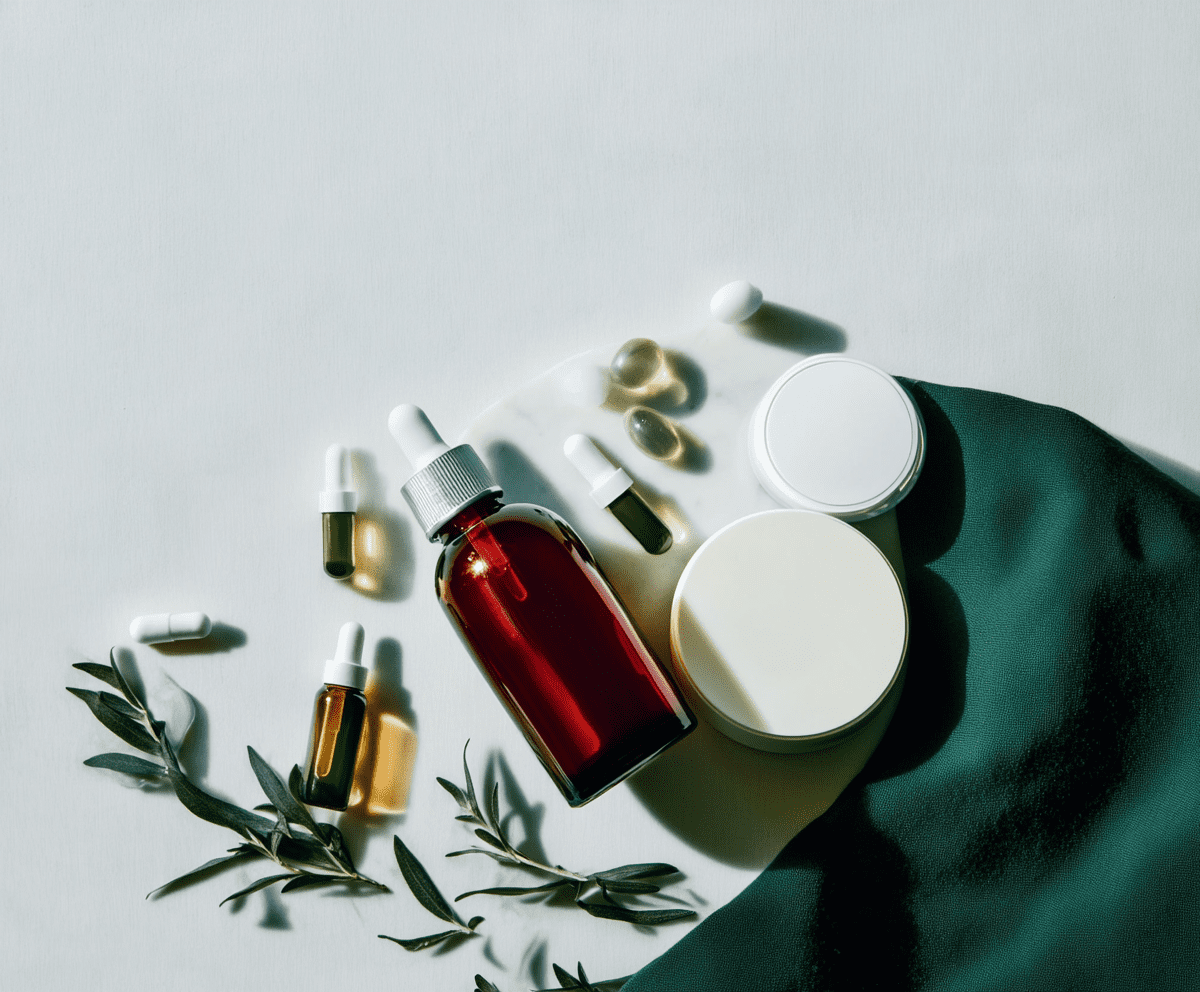Menopause and Self-Image: Reclaiming Confidence in a Changing Body
Rebuild your confidence and embrace body changes during menopause with helpful strategies, and discover why self-compassion is more powerful than ever.

Struggling with self-confidence during perimenopause or menopause is more common than many realise, and it’s a manageable part of the transition. The intersection of hormonal changes and physical transformations creates challenges affecting how millions of women view themselves.
This isn’t simply about ageing. It’s a specific biological shift requiring understanding, self-compassion, and targeted strategies to rebuild confidence from the inside out.
When Hormones and Symptoms Collide
Research shows that menopause significantly impacts how women perceive their bodies, with many experiencing more negative body perceptions during this transition (Vincent et al., 2023).
As estrogen levels decline, several physical changes directly affect how you see and feel about yourself:
- Altered body composition: Changes in fat distribution, particularly increased abdominal fat
- Skin and hair changes: Reduced collagen production leads to visible ageing signs
- Sleep disruption: Poor sleep quality affects mood regulation and self-perception
- Cognitive changes: Brain fog can undermine feelings of competence
Women experiencing more intense menopausal symptoms—whether it’s severe hot flushes, night sweats, or mood changes—often report feeling less satisfied with their appearance and less confident overall (Nazarpour et al., 2021).
This creates a concerning cycle: when you feel disconnected from or frustrated with your body, menopausal symptoms can feel more overwhelming. Meanwhile, persistent symptoms can chip away at your self-confidence, making you feel less like “yourself.”
Why Being Kind to Yourself Makes All the Difference
How you talk to yourself during menopause can protect your body image and confidence. Self-compassion isn’t just feel-good advice, it’s a powerful tool during this transition (Brown et al., 2015).
Think of self-compassion as having three parts:
- Be your own best friend: Instead of beating yourself up about changes, try speaking to yourself the way you’d comfort a close friend going through the same thing
- Remember you’re not alone: Every woman who’s ever lived has faced changes and challenges, this struggle is part of being human, not a personal failing
- Mindfulness: When difficult thoughts pop up, try observing them like clouds passing by rather than getting swept away by them
Strategies for Reclaiming Confidence
Physical Activity:
- Strength training: Builds confidence through improved functionality
- Cardiovascular exercise: Enhances mood through endorphin release
- Yoga and mindfulness movement: Combines physical and mental benefits
- Group activities: Provides social connection
Mindfulness and Cognitive Interventions:
- Daily body appreciation meditation
- Challenge appearance-focused negative thoughts
- Focus on body functionality rather than appearance
- Develop realistic expectations for physical changes
Cognitive Behavioural Therapy showed significant benefits for anxiety and depression in menopausal women, directly supporting better body image and self-confidence (Zhang et al., 2024).
Building Support and Redefining Success
Social Connection
Social support networks play crucial roles in menopause experience. Women with strong support systems report better body image and confidence (Brown et al., 2015).
- Join menopause support groups or online communities
- Communicate openly with partners about changes
- Seek friendships with women in similar life stages
Nutritional Support
Supporting your body with the right nutrients during menopause can make a big difference, helping to stabilise mood, improve sleep, maintain muscle, and boost overall energy and wellbeing. Key nutrients like omega-3s, magnesium, protein, and vitamin D all play important roles in this transition (Holick, 2007).
Redefining Beauty Standards
Menopause offers opportunity to shift from youth-oriented beauty standards to values reflecting wisdom, experience, and authentic self-expression.
Conclusion
The relationship between menopause and self-image is complex but not predetermined. While hormonal changes present real challenges, research demonstrates women can maintain and enhance confidence during this transition.
The key lies in shifting focus from fighting change to embracing growth, from external validation to internal wisdom. With proper understanding and targeted interventions, menopause becomes not just transition, but a period of reclaiming confidence on your own terms.
How Emsee Can Help
Want support on your menopause journey? Book a free first consultation with one of our experienced doctors, naturopaths or nutritionists today by calling 1300 412 422 or fill out our online contact form.
Alternatively, answer a few questions about your health and lifestyle to get a free assessment report on your situation and discover if Emsee is the perfect match for you.
References
- Brown, L., Bryant, C., Brown, V. M., Bei, B., & Judd, F. K. (2015). Investigating how menopausal factors and self-compassion shape well-being: An exploratory path analysis. Maturitas, 81(2), 293-299.
- Elavsky, S., & McAuley, E. (2007). Exercise and self-esteem in menopausal women: A randomized controlled trial involving walking and yoga. American Journal of Health Promotion, 22(2), 83-92.
- Holick, M. F. (2007). Vitamin D deficiency. New England Journal of Medicine, 357(3), 266–281.
- Nazarpour, S., Simbar, M., Majd, H. A., et al. (2021). The relationship between postmenopausal women’s body image and the severity of menopausal symptoms. BMC Public Health, 21(1), 1599.
- Vincent, C., Samulski, A., Sharp, L., & McCann, L. (2023). Associations between menopause and body image: A systematic review. Women’s Health, 19, 17455057231209536.
- Zhang, Q., Zhao, Y., Bai, Y., Li, L., & Ren, K. (2024). The effectiveness of psychosocial interventions on non-physiological symptoms of menopause: A systematic review and meta-analysis. Journal of Affective Disorders, 354, 174-186.
This article is intended for informational purposes only and does not replace professional medical advice. Please consult with a healthcare provider for any specific symptoms or issues you might be experiencing.












